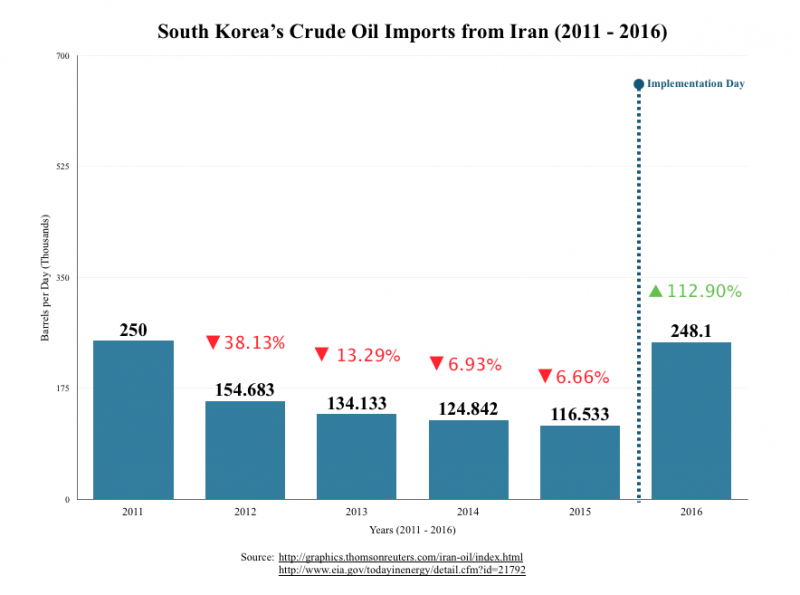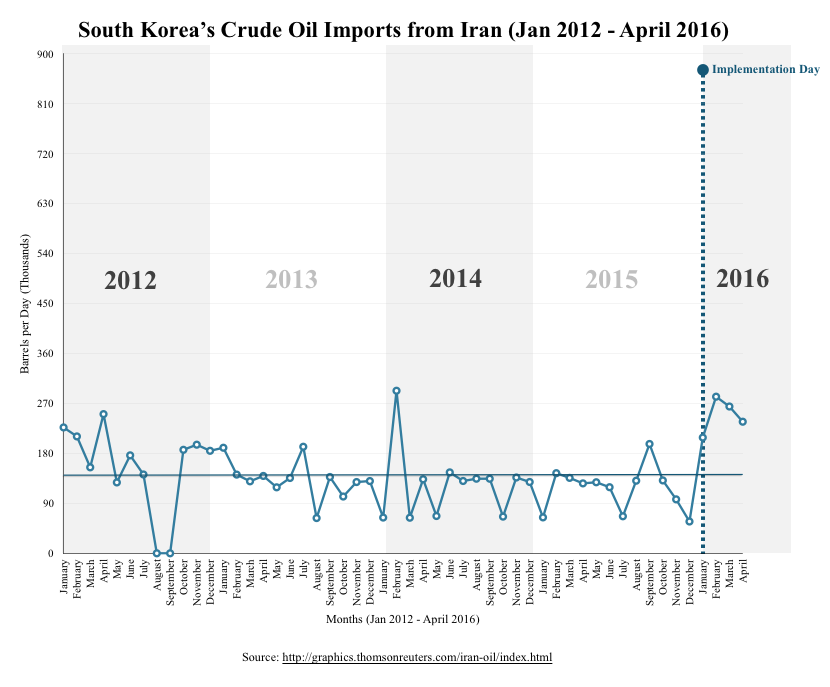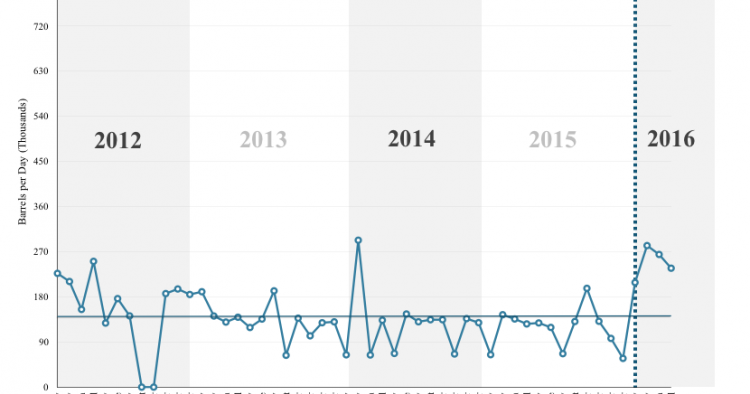South Korea is the world’s fifth-largest crude oil importer and sixth-largest oil refining country. In June 2012, South Korea suspended all oil imports from Iran in response to a European Union insurance ban on tankers carrying Iranian crude oil.[1] South Korea subsequently obtained a waiver and resumed importing Iranian crude oil. However, the average annual volume of crude oil purchased by South Korea from Iran during the period 2012-2015 was 40% lower than in 2011. During the sanctions years, other Middle Eastern suppliers and Russia substituted for South Korea’s lost imports from Iran.[2]
From January to June 2016, South Korea’s imports of Iranian crude skyrocketed, due to the lifting of sanctions and the country’s strong demand for cheap Iranian condensate.[3]


[1] Charles Kennedy, “South Korea Become First Major Asian Customer to Halt Iranian Imports,” Oilprice.com, June 26, 2012, accessed August 8, 2016, http://oilprice.com/Latest-Energy-News/World-News/South-Korea-Become-Fi….
[2] U.S. Energy Information Administration (E.I.A.), “South Korea,” last updated October 5, 2015, accessed August 8, 2016, https://www.eia.gov/beta/international/analysis_includes/countries_long….
[3] Hyun Joo Jin and Florence Tan, “South Korea’s condensate imports from Iran to soar in June,” Reuters, June 9, 2016, accessed August 8, 2016, http://www.reuters.com/article/us-southkorea-iran-oil-idUSKCN0YV0NU; and Heesu Lee, “Top Oil Market Embraces Iran Once Again as Asia Imports Jump,” Bloomberg News, July 28, 2016, accessed August 8, 2016, http://www.bloomberg.com/news/articles/2016-07-28/biggest-oil-market-em….
The Middle East Institute (MEI) is an independent, non-partisan, non-for-profit, educational organization. It does not engage in advocacy and its scholars’ opinions are their own. MEI welcomes financial donations, but retains sole editorial control over its work and its publications reflect only the authors’ views. For a listing of MEI donors, please click here.













